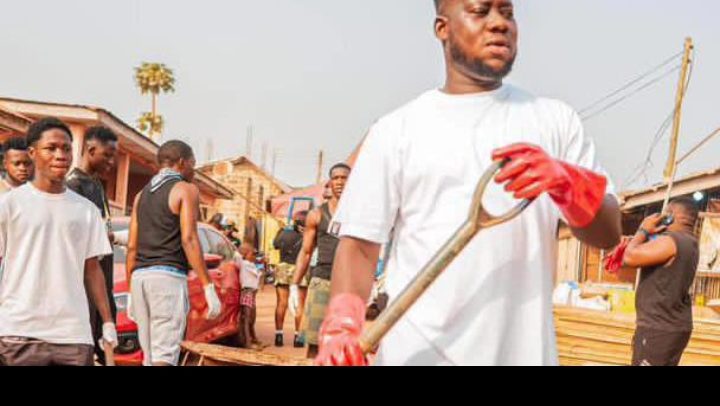
I am a Ghanaian from “the South”. Forgive me for venturing into the Bawku conflict, which has defied all attempts at finding a solution. I may be naive in my understanding of the intricate underpinning of the conflict, the fine details of the history and traditions of the people involved.
For that, I ask for pardon and understanding of the rantings of an ignorant man from “the South”.
On a day when the media space has been inundated with news of the Asantehene’s imminent beginning of his mediation attempt in the Bawku conflict, it is my hope that anything written here may not be deemed prejudicial to his efforts. This write-up is done in good faith and for the ultimate realization of PEACE.
I have been to Bawku a number of times in the past. However, I’m not sure I can venture at this time with all the reports of active fighting and general insecurity in and around Bawku.
Bawku is dear to me, as is the entire Upper East Region.
My roommate in the first year at Legon was from Bawku. Azinim, I salute you.
I shared a bungalow with a Bawku boy by name Braimah who was quick to tell everyone who would listen that he was a Busanga boy from Bawku. Not that it mattered to me. All this happened in the 1970s.
Fast forward to the 90s and beyond and it has been the same conflict over and over again. Government continues to contain and resolve the conflict with deployment of security forces all the time. In the ensuing insecurity, workers posted to Bawku vacate their posts and no new personnel are attracted to the place.
It is generally agreed that the Bawku conflict is an ethnic contest between two rival tribes over which tribe has the right to enskin the Bawku Na-ba. In other words, who is the rightful chief of Bawku?
From information pieced together, it appears to me that we have a classic case of a people fighting for SELF DETERMINATION. Why? This is where history comes in.
An acephalous community welcomes into their midst another community that practices the system of chieftaincy. The two communities live together, side by side, trade, intermarry, all in peace. Nothing wrong with that. Each community practices its sociocultural system as it sees fit. But evolution is inevitable and assimilation occurs over time. The community that did not practice chieftaincy begins to accept it with time and want a chief of their own.
Then the community that had always been practicing the system and therefore had the advantage over the other community that had hitherto not practiced chieftaincy feel reluctant to let go.
That for me is the Bawku conflict in a nutshell, even if some may disagree. All the arguments about which court or political power did what in the past to vary the status quo are simply attempts to muddy the issue. You are for or against SELF DETERMINATION.
History teaches us that a people determined to free themselves from “oppression” will usually go to every extent to fight for it and their motivation is a key factor in the struggle/conflict.
This is my understanding of the Bawku conflict.
By Ambassador Kwame Tenkorang,
Teshie/Nungua
The views expressed in this article are the author’s own and do not necessarily reflect The Chronicle’s stance.
The post Bawku – Case Of Self Determination? appeared first on The Ghanaian Chronicle.
Read Full Story




















Facebook
Twitter
Pinterest
Instagram
Google+
YouTube
LinkedIn
RSS